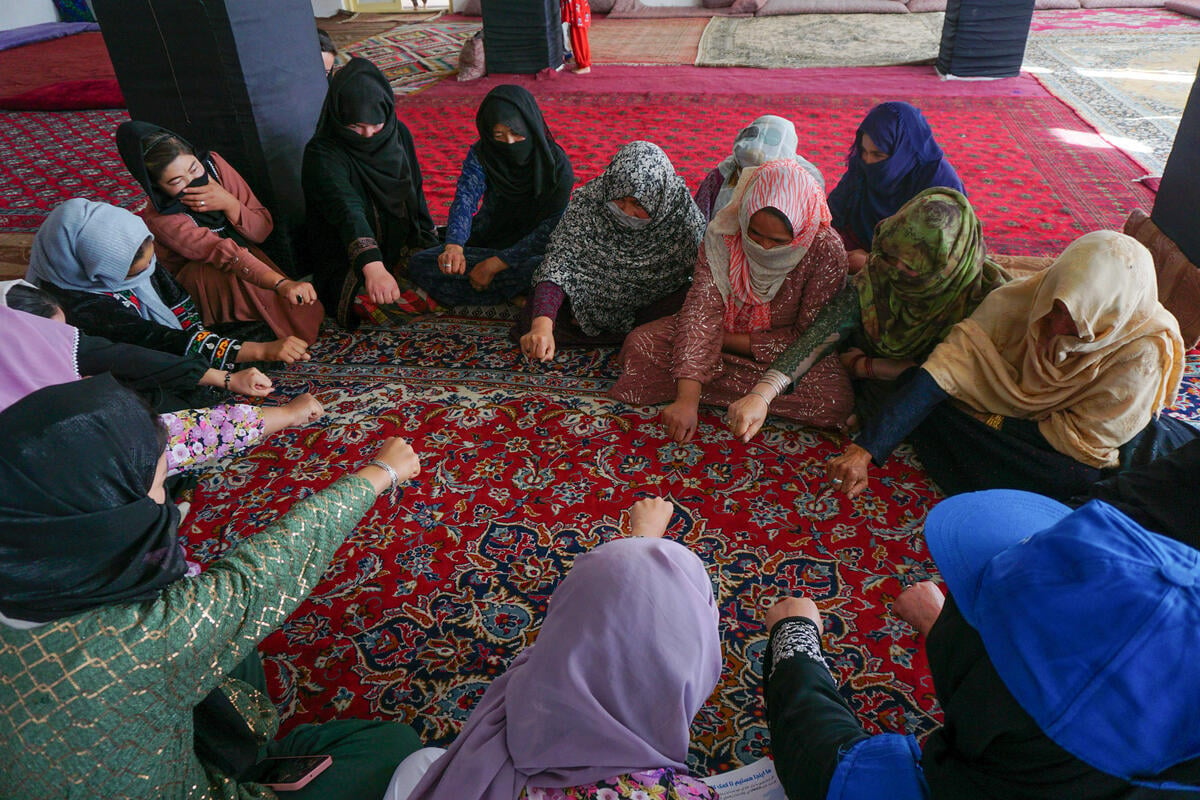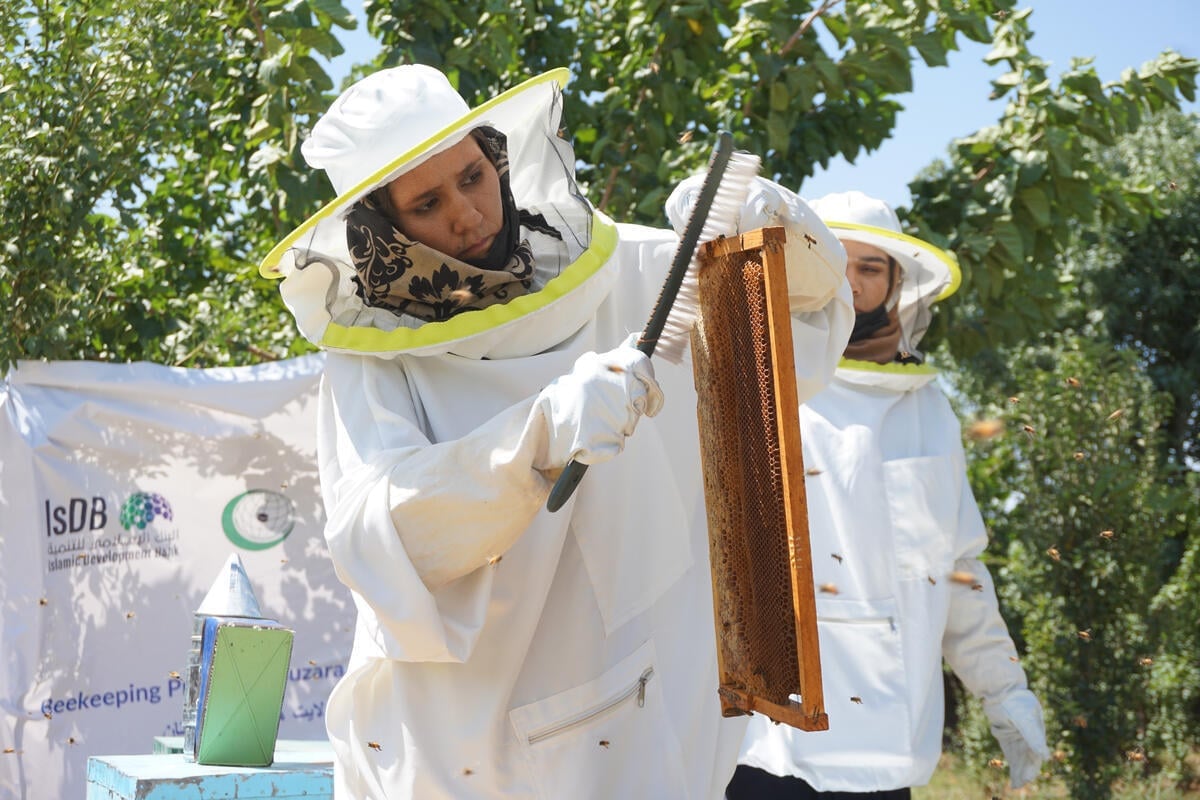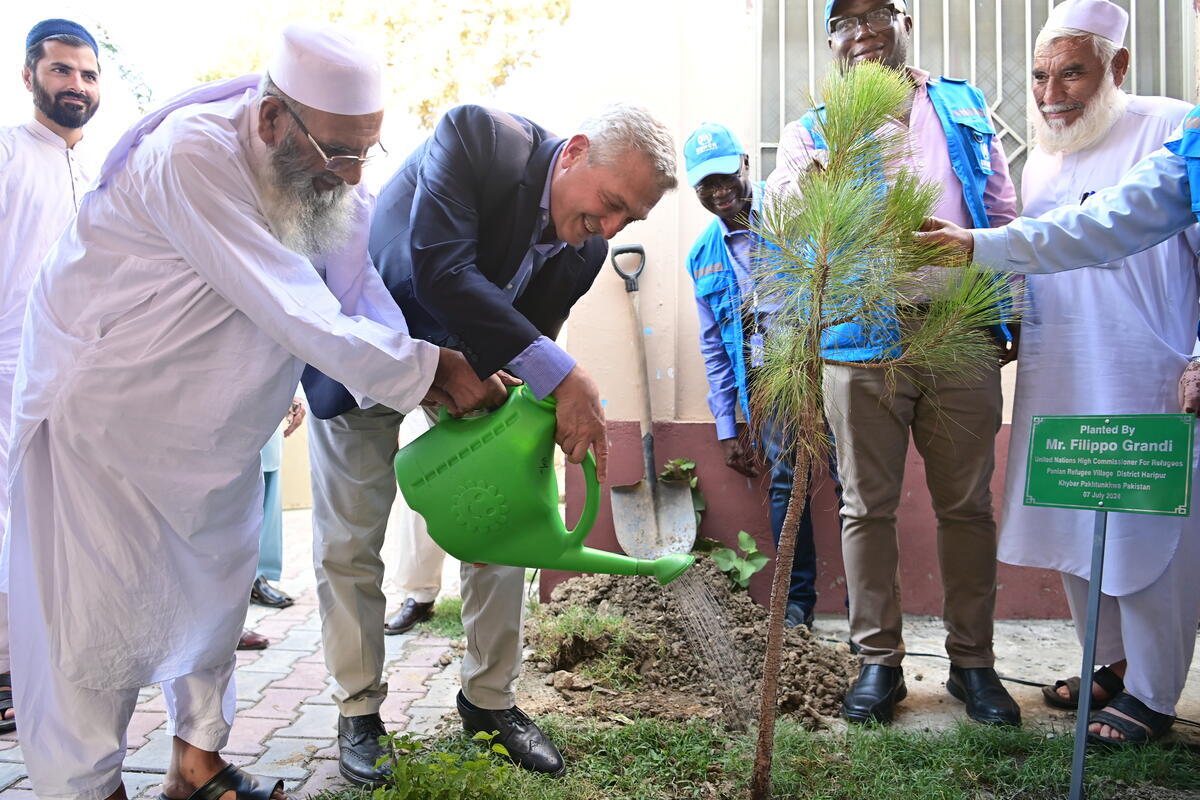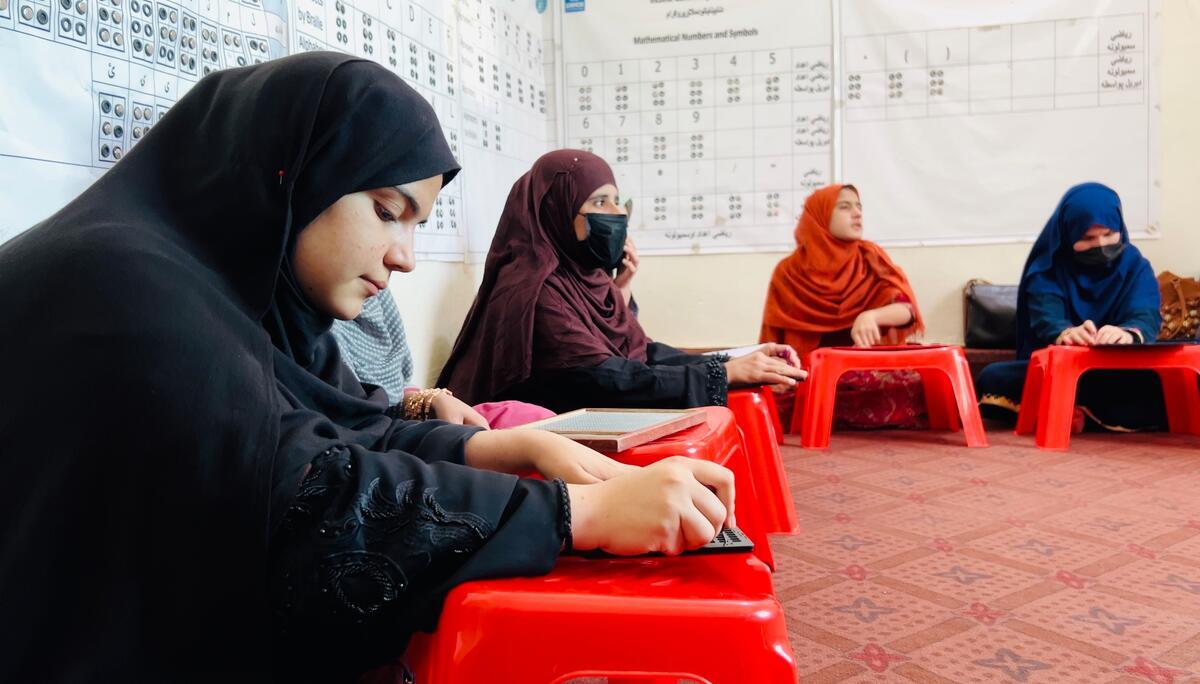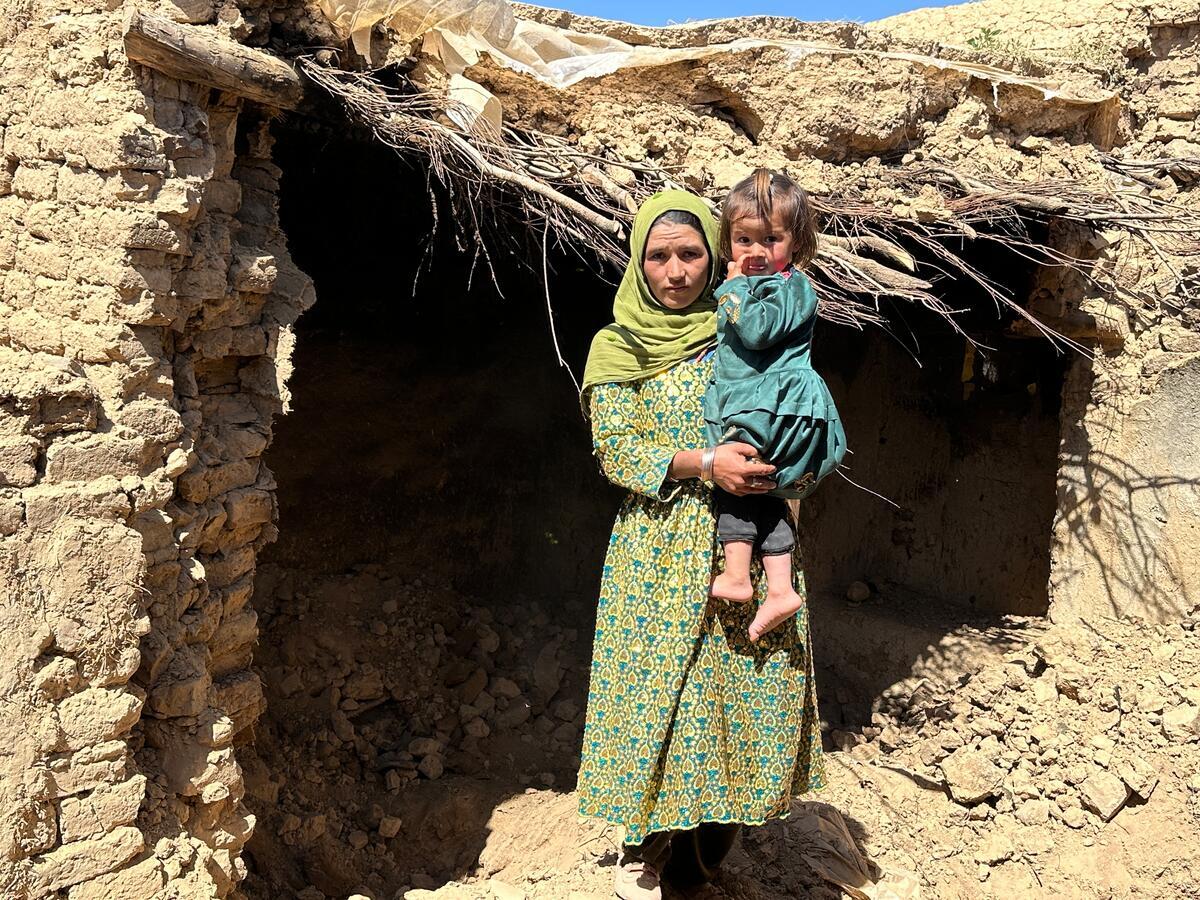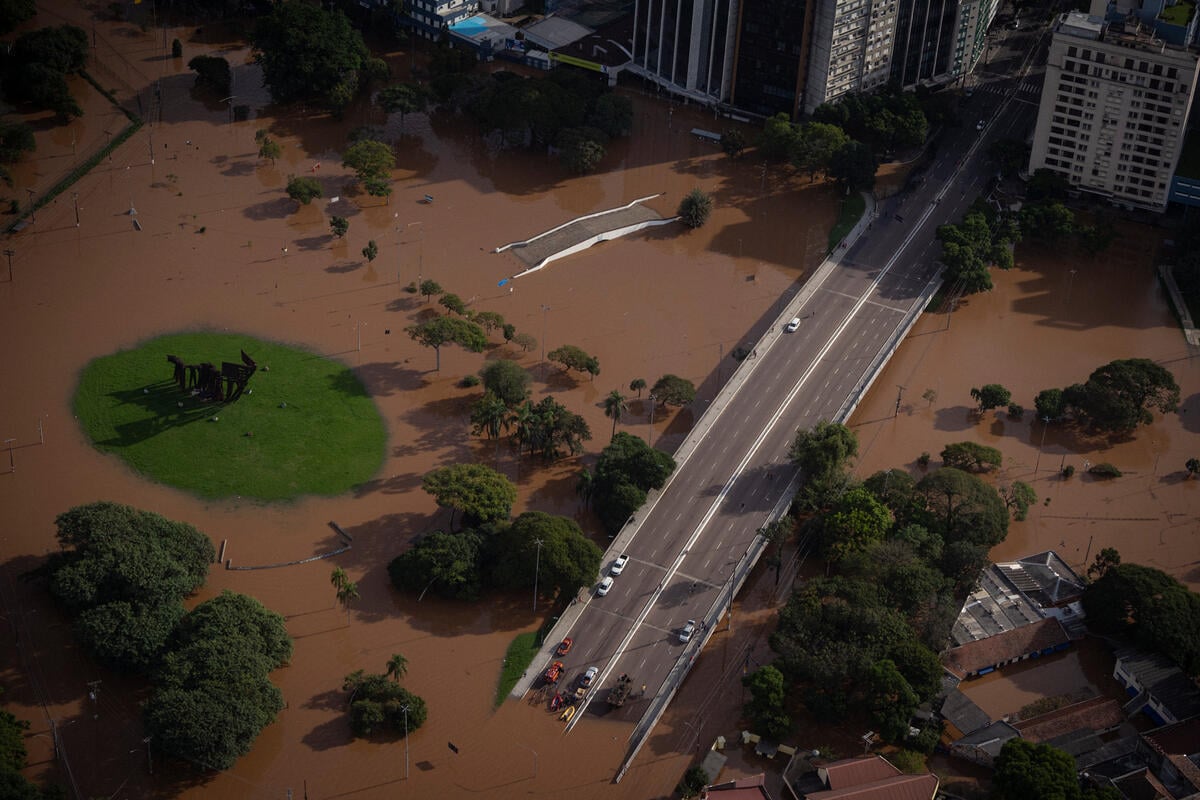Afghanistan: IDP needs assessment around Kabul begins
Afghanistan: IDP needs assessment around Kabul begins
UNHCR today began an assessment of the needs of tens of thousands of internally displaced people (IDPs) around Kabul. Working with some 175 mobile monitors from 35 local NGOs, we will survey 56 districts in four provinces in and around Kabul. The survey is expected to take about two weeks, but we'll begin delivering assistance as soon as the results are received identifying specific needs in each area. UNHCR plans to assist up to 50,000 IDPs in the area.
Over the weekend we completed the distribution of winter emergency kits to 10,500 destitute people living in Kabul, many of them people who saw their homes destroyed during the recent air attacks and families displaced during the years of war. The thousands of families identified in this first phase of UNHCR's assistance activities each received stoves for cooking and heating, plastic tarpaulins, bags of charcoal, blankets, sweaters, and quilts.
UNHCR is preparing to help more than 30,000 Afghans back to their homes in the Shomali Plains north of Kabul. Some of these displaced Afghans are living in Kabul's former Soviet compound and in the Panjshir Valley in the north-west. The return operation could begin as early as next week.
Once we get the green light from the de-miners, UNHCR will help IDP returnees with transport back to the Shomali Plain and, with other UN and relief agency partners, will provide integration assistance, including shelter materials, water, health and education aid.
UNHCR is continuing to monitor population movements into and out of Kabul. In the last week, more than 7,000 people have returned to the city. Out of this group, some 5,000 are IDPs who fled the city to escape the air strikes, while the remaining 2,000 are returning refugees from Pakistan.
In Pakistan, meanwhile, UNHCR today began relocating ethnic minorities and urban refugees from Jalozai camp in North West Frontier Province. The first convoy of eight buses carrying more than 400 ethnic Tajiks and Uzbeks departed for Old Bagzai camp in Kurram Agency, some 230 kilometres west of Peshawar. It is a seven-hour journey. Old Bagzai is in a tribal area dominated by Pashtuns, but where non-Pashtun Sunni Muslims are accepted by the local population.
The first convoy of Peshawar's urban refugees - so-called "invisible" refugees, since they have kept a low profile since arriving unofficially in Pakistan - went from the city this morning to Kotkai camp. The two-bus convoy carried 129 refugees to Kotkai in Bajaur Tribal Agency. Afghans being relocated to Kotkai are ethnic Pashtuns. Upon their arrival in Old Bagzai and Kotkai, the relocated refugees receive warm meals and blankets before being registered. UNHCR also supplies them with other household items, including heating and cooking stoves, tents, plastic sheets, jerry cans and buckets. WFP will provide food rations. Water and healthcare facilities are also available on the site. Pre-departure medical checks took place in Jalozai to screen out those Afghans unfit for the particularly long journey.
In order to support the regional government in Pakistan's North West Frontier Province, UNHCR today provided medicines worth more than $200,000 for use in two main hospitals in Peshawar and one in Bajaur Agency where new Afghan refugees are being relocated. The drugs include antibiotics, antihistamines, anti-fungal drugs, oral rehydration salts, antacids and surgical items contributed to UNHCR by the governments of Bangladesh and Morocco. UNHCR hopes this contribution will help to ease pressure on local health facilities overstretched by the arrival of tens of thousands of new Afghan refugees over recent months in North West Frontier Province. The region already hosts 86 percent of the 1.2 million Afghans living in Pakistan's refugee settlements, many for over two decades.


